
Stand with Belarusian Arts and Culture community. Donate to Save Our Songs campaign.
Persecution, Convictions, Bans, Cultural Policy

Alaksandr Fiaduta, a member of the Belarusian PEN Center, a writer, editor, journalist, literary critic, was detained in Moscow by the KGB of Belarus due to suspicion of committing a crime. Alaksandar Łukašenka [Alexander Lukashenko] claimed that Fiaduta together with six other people allegedly planned to carry out a military coup and physically liquidate Łukašenka and his sons. The defendants face up to 12 years in prison.
The play Chernobyl Prayer, which was to be shown at the Theater of Belarusian Drama on the 35th anniversary of the Chernobyl nuclear power plant, based on the book by Svetlana Alexievich, was suddenly replaced by another show.
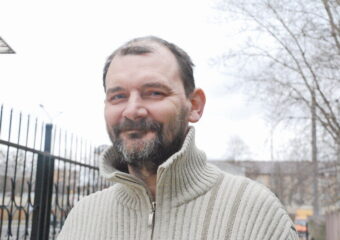
Pressure on individuals in the case of the Union of Poles continues. The Hrodna prosecutor’s office issued an official warning to Andrzej Pisalnik, an activist of the Union of Poles, who in early April expressed a number of opinions on Polish radio stations Radio 24 and Radio 4 about “large-scale propaganda against Poland by the Belarusian media.”
Nastaśsia Piatrova [Anastasia Piatrova], an artist of the Opera Orchestra, was fired on 14 April. On 27 March, she was detained and served 15 days in jail.
Taćciana Hacura-Javorskaja [Tatiana Gatsura-Yavorskaya] was released from Minsk pre-trial prison No. 1 in Minsk on April 15, on the grounds that there were no reasons to keep her in jail. Uladzimir Javorski [Yavorski], Taćciana’s husband, was forced to leave Belarus under threat of deportation for 10 years. Now he is in Kiev.

The pressure on the family of the public activist of the Belarusian Language Society from Baranavičy Taćciana Małaščanka [Tatsiana Malashchanka], continues. Her husband was deported for three years, damage has been done to her property.
Authorities plan to cut 20% of jobs in the cultural sphere in Belarus by the end of 2021. Today 65.5 thousand people are employed in culture, and the salaries are some of the lowest: 55.3% of the average salary in the country.
No books and magazines are allowed in the packages sent to prisoners of Brest and Mahiloŭ detention facilities.
Symbols
On the coat of arms of Mahiloŭ, placed in Brest, approved in 2005 (in that form it was presented to the city in 1661 by the King of Poland and the Grand Duke of Lithuania Jan Kazimierz) “Pahonia” was painted over white, later it was removed at all.
Biaroza town name sign post was painted in red and green.
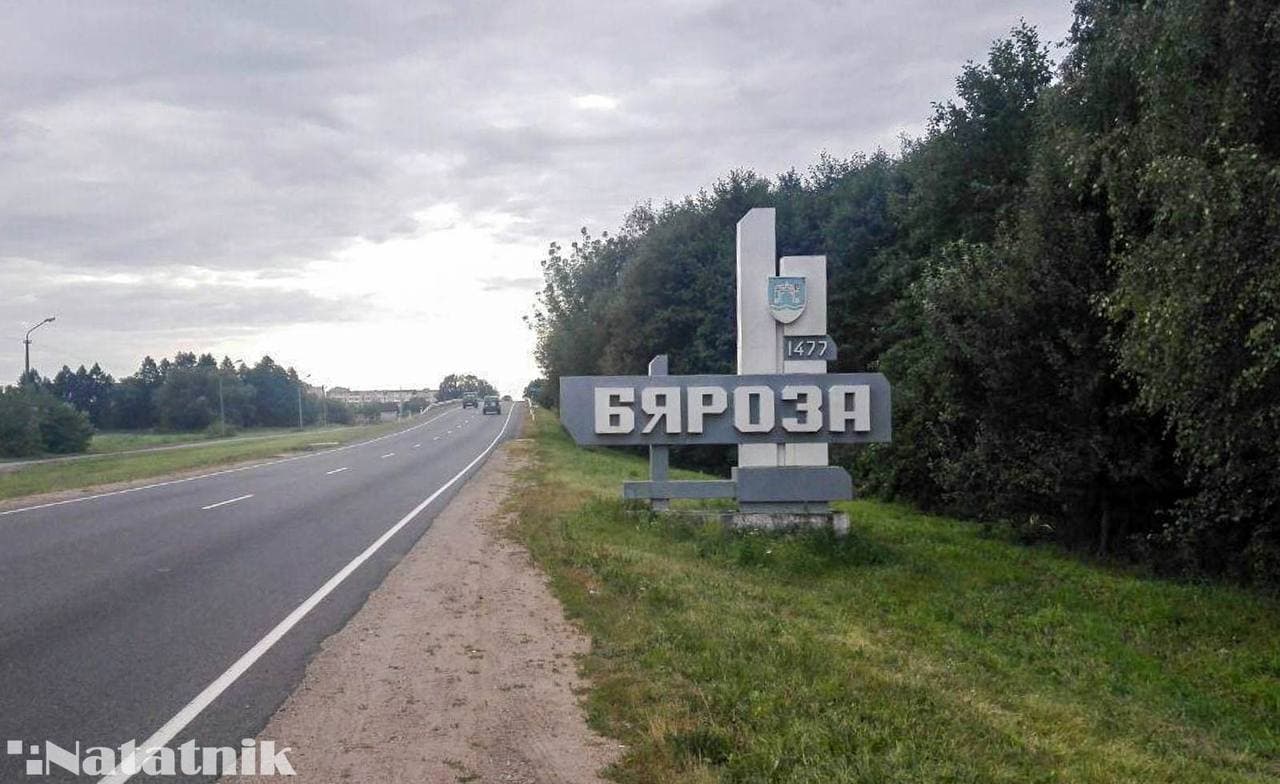

The white and red region name sign in Brest region was repainted over in white and blue.
Dźmitry Hančaroŭ [Dzmitry Hancharou] was sentenced to 15 days of administrative arrest for a Christmas garland in the window, the court also ruled to destroy the garland.
Fines and administrative arrests continue being imposed for white-red-white flags, stripes on clothes and Pahonia.
Despite the danger, women under white-red-white umbrellas boldly and with dignity go out for a walk around their city.
Cultural Resistance
The first online meeting of the Intellectual Club of Svetlana Alexievich took place on 14 April. The topic of the meeting was “Why is the “red (wo)man” afraid of history?”
Artist Alaksiej Chackievič [Aliaksei Khatskevich] on his Facebook page announced an auction in support of the fired Nastaśsia Piatrova.
Jaŭhien Łukaševič, sketches from 15 days of arrest served in the detention centre in Lida:
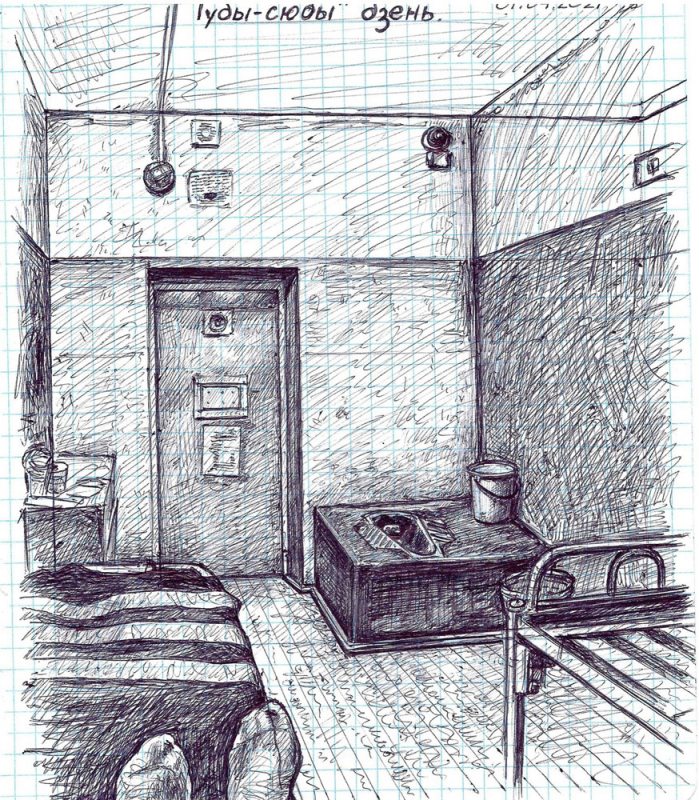
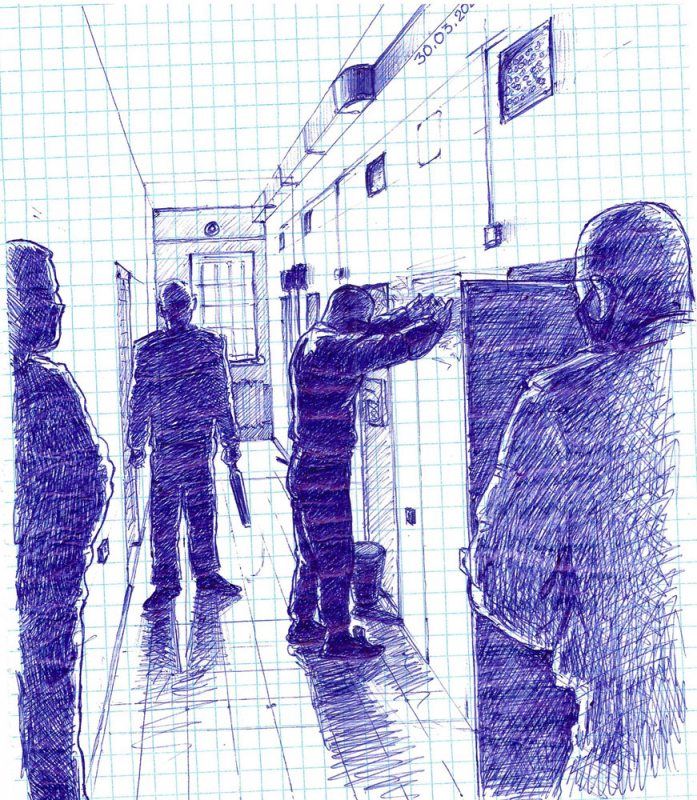
Letters from behind bars: art of prisoners.
Art against absurdity:
Vladimir Tsesler “Mighty God. Free Choir”;
allkimiya “The bravest, the strongest, the most…”;
Volha Jakuboŭskaja “Pahonia is our coat of arms and our anthem!“;
Lilia Kvatsabaya “Shut_it_up”;

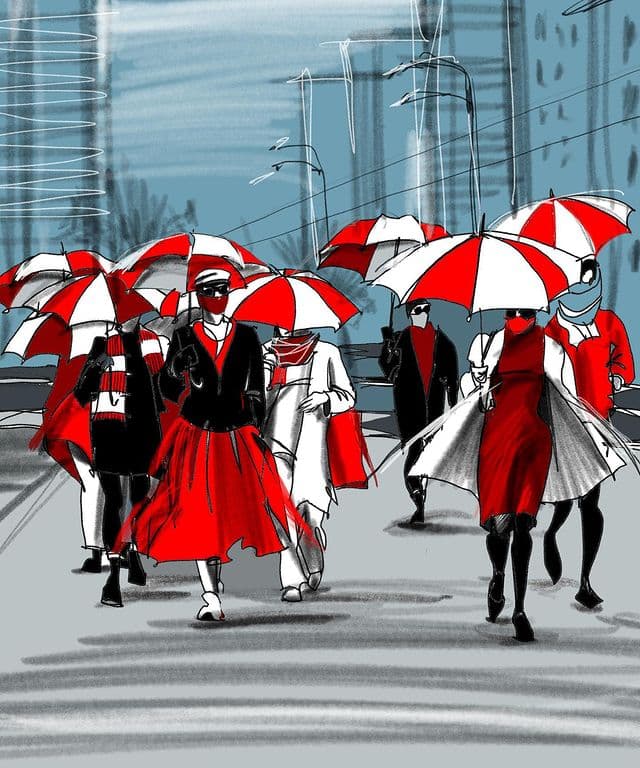

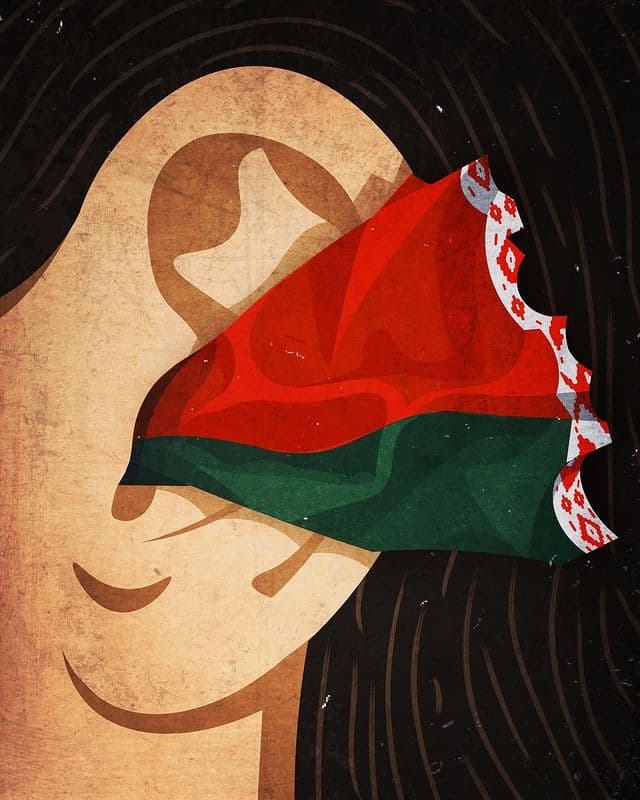
Victory Artists: Aleh Chamienka played online on 17 April.
Despite the danger, women under white-red-white umbrellas boldly and with dignity go out for a walk around their city.
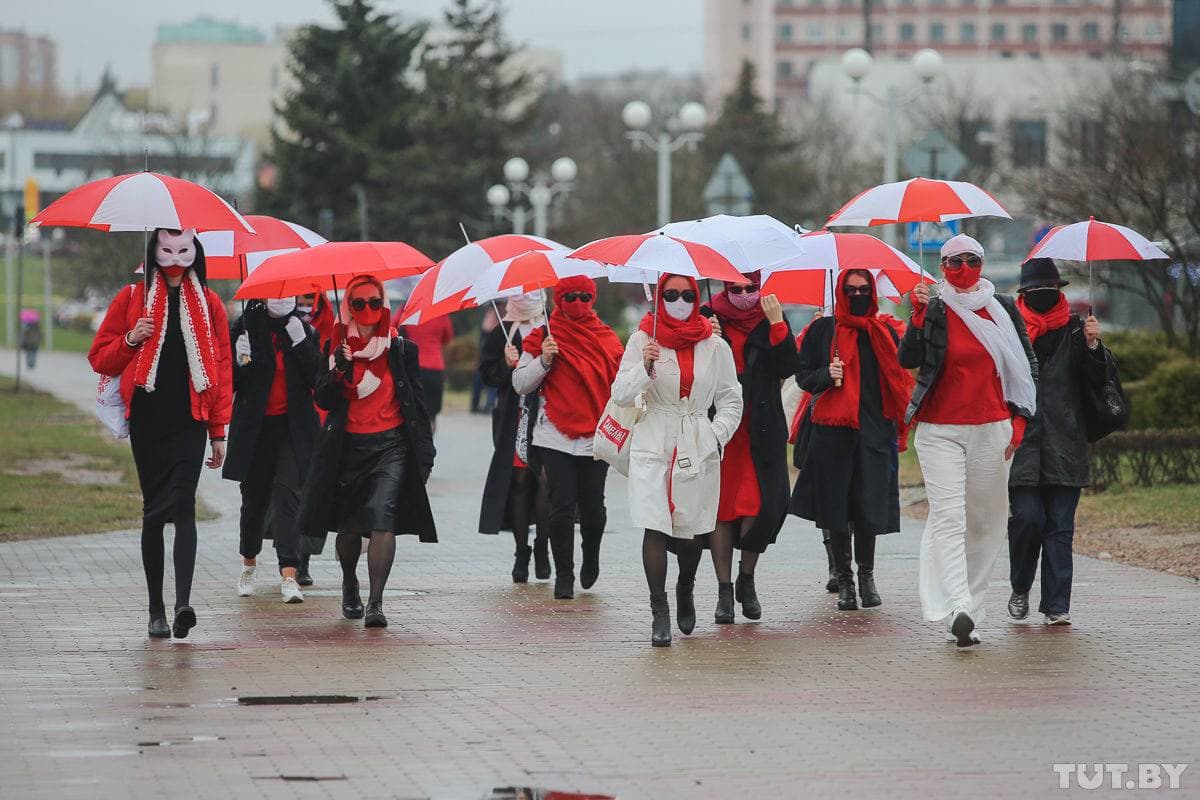
Voices of Belarusian Culture

Vital Hurkoŭ [Vital Gurkou], vocalist of the punk band BRUTTO, Belarusian kickboxer, multiple world champion:
“We have to hold out til the 12th round of the championship. We have already done half the round. What the next rounds will be, no one knows yet. We need to be stronger, more careful and attentive, not to lose concentration. And all will be well. I consider it a victory if we have an independent, free Belarus with its own language, culture and history”.
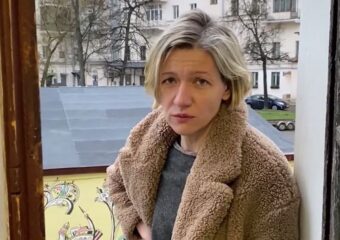
Taćciana Hacura-Javorskaja spent 10 days in the pre-trial detention center and was released without charge. She told how women political prisoners live there:
“The only global question that worries people behind bars now is: am I here for a reason, is it not in vain?”
International Solidarity
Belfast film festival and Docs Ireland called on the authorities in Belarus to release Taćciana Hacura-Javorskaja and asked other documentary film festivals, film workers and humanitarians to do the same.
The European Film Academy and more than 50 film organizations called for the release of Taćciana Hacura-Javorskaja.
PEN-Moscow and the Free Word Association released a statement in support of Alaksandr Fiaduta, signed by 80 well-known writers, journalists and translators.
More than 60 Polish literary scholars have signed a letter demanding the release of Alaksandr Fiaduta.
The Polish PEN Club demands the immediate release of Alaksandr Fiaduta.
Political prisoners having birthday this month
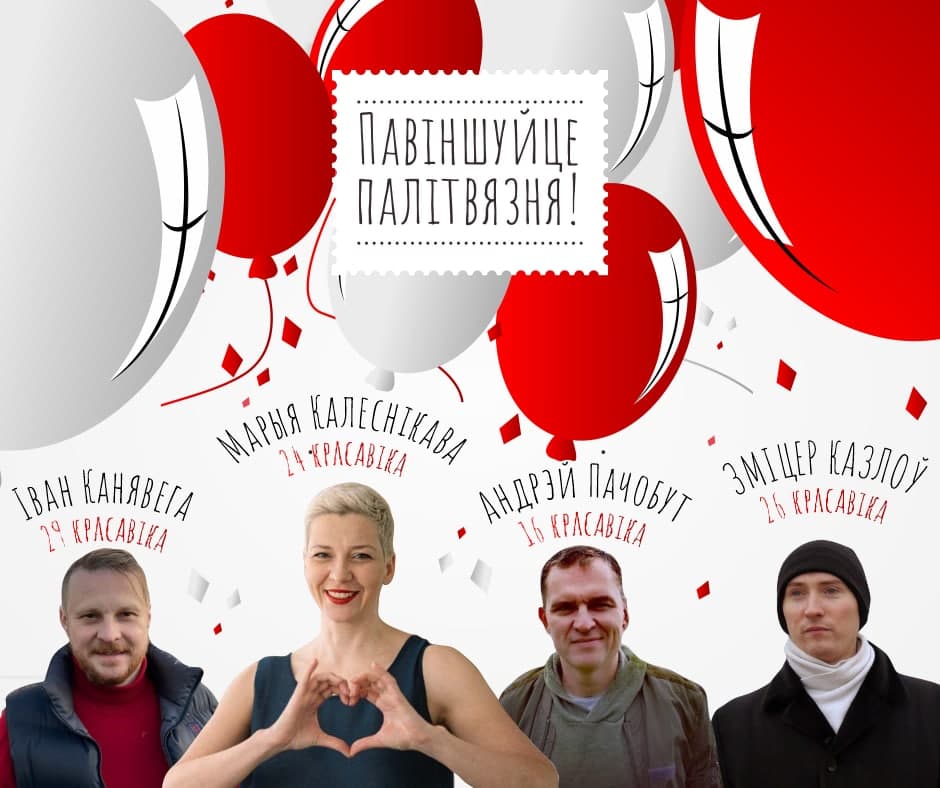
Four people who care about the cultural development of Belarus – Maryja Kaleśnikava [Maryia Kalesnikava], Andrej Pačobut [Andrzej Poczobut], Dźmitryj Kazłoŭ [Dzmitry Kazlou] and Ivan Kaniavieha [Ivan Kaniaveha] – celebrate their birthdays behind bars in April. You can congratulate them by sending a letter at the following addresses (written in Russian to make sure they’ll be delivered):
СИЗО-1. 220030, г. Минск, ул. Володарского, 2, Беларусь
- Maryja Kaleśnikava – Колесникова Мария Александровна
- Andrej Pačobut – Почобут Андрей Станисловович
- Ivan Kaniavieha – Коневега Иван Викторович
Тюрьма №4. 212011, г. Могилёв, ул. Крупской, 99А
Dźmitryj Kazłoŭ – Козлов Дмитрий Олегович
Download the pdf-version of issue 28 of Cultural Resistance Monitoring
